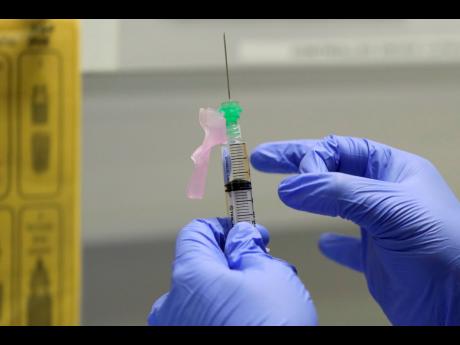UK to infect healthy volunteers in vaccine research trial
LONDON (AP):
Danica Marcos wants to be infected with COVID-19.
While other people are wearing masks and staying home to avoid the disease, the 22-year-old Londoner has volunteered to contract the new coronavirus as part of a controversial study that hopes to speed development of a vaccine.
Marcos and other young volunteers say they want to take part to help bring an end to the pandemic after seeing the havoc it has wreaked. The grandparents of Marcos’ best friend died early in the crisis, and as a volunteer for a homeless charity she has seen the struggles of those who have lost their jobs.
“So many people (are) struggling right now, and I want this pandemic to be over,” Marcos said. “Every day that goes on, more cases are going on, more people are dying. And if this vaccine trial could mean that this period of trauma for the whole world will be over sooner, I want to help. I want to be a part of that.”
Imperial College London and a group of researchers said Tuesday that they are preparing to infect 90 healthy young volunteers with the virus, becoming the first to announce plans to use the technique to study COVID-19 and potentially speed up development of a vaccine that could help end the pandemic.
This type of research, known as a human challenge study, is used infrequently because some question the ethics of infecting otherwise healthy individuals. But the British researchers say that risk is warranted because such studies have the potential to quickly identify the most effective vaccines and help control a disease that has killed more than 1.1 million people worldwide.
“Deliberately infecting volunteers with a known human pathogen is never undertaken lightly, said Professor Peter Openshaw, co-investigator on the study. “However, such studies are enormously informative about a disease, even one so well studied as COVID-19.”

